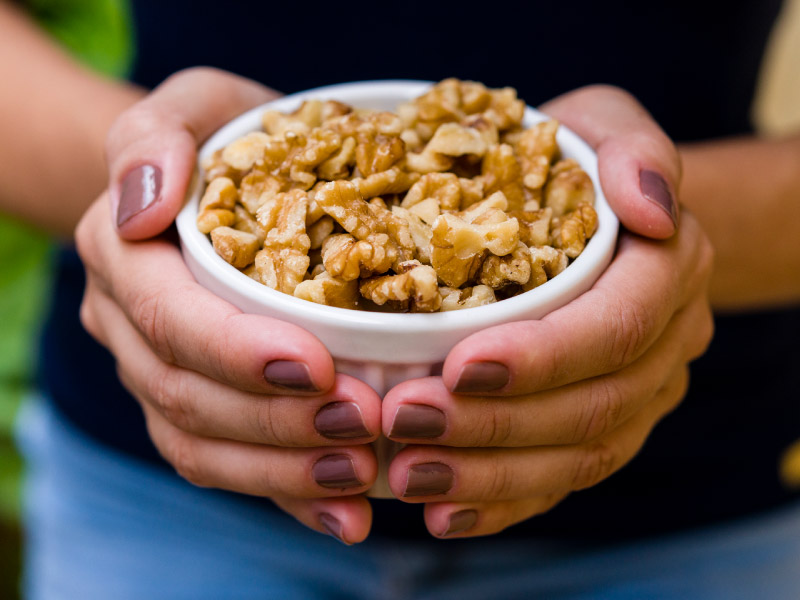
Adding a fistful of walnuts to your daily diet – no matter what else you eat – could lower bad cholesterol levels and reduce heart risks in otherwise healthy older adults, a new study suggests.
The study, published Monday in the American Heart Association journal Circulation, found people who ate about half a cup of walnuts every day for two years modestly lowered their LDL, or “bad,” cholesterol levels as well as the number of LDL particles associated with cardiovascular disease risk.
Previous studies show walnuts, which are high in omega-3 fatty acids, are associated with lower rates of heart disease and stroke, as are nuts in general.
“One of the reasons is that they lower LDL cholesterol levels, and now we have another reason: They improve the quality of LDL particles,” study co-author Dr. Emilio Ros said in a news release. Ros is director of the Lipid Clinic at the Endocrinology and Nutrition Service of the Hospital Clínic of Barcelona in Spain.
“LDL particles come in various sizes,” he said. “Research has shown that small, dense LDL particles are more often associated with atherosclerosis, the plaque or fatty deposits that build up in the arteries. Our study goes beyond LDL cholesterol levels to get a complete picture of all of the lipoproteins and the impact of eating walnuts daily on their potential to improve cardiovascular risk.”
In the study, funded by the California Walnut Commission, 708 adults ages 63 to 79 were split into two groups. One added a half-cup of walnuts every day to their regular diet for two years. The other group ate no walnuts. Participants lived in Barcelona, Spain and Loma Linda, California.
At the end of two years, researchers analyzed LDL cholesterol because high levels raise the risk for heart disease and stroke. They looked at total LDL levels as well as the concentration and size of LDL particles, which can provide a better indication of the risk to cardiovascular health.
Of the 628 people who completed the study with full lipoprotein profiles, researchers found the walnut-eaters lowered LDL levels an average of 4.3 mg/dL. They also reduced the number of total LDL particles by 4.3% and small particles by 6.1%. The benefit was greater in men, who lowered LDL cholesterol by 7.9% compared to a 2.6% drop for women. Results were consistent independent of what else participants ate or where they lived.
Although the drop in LDL wasn’t tremendous, Ros said, the average cholesterol of study participants was already normal because nearly half were receiving cholesterol-lowering treatment. “For individuals with high blood cholesterol levels, the LDL cholesterol reduction after a nut-enriched diet may be much greater,” he said.
Intermediate density lipoprotein, or IDL cholesterol, also decreased in the walnut group. In the past decade, IDL cholesterol – a precursor to LDL, short for low-density lipoprotein – has emerged as another independent cardiovascular risk factor.
Ros said despite concerns over potential weight gain from healthy fat in the nuts, those who ate walnuts did not put on extra pounds. “Eating a handful of walnuts every day is a simple way to promote cardiovascular health.”
If you have questions or comments about this story, please email editor@heart.org.




